SUMMARY
This is AI generated summarization, which may have errors. For context, always refer to the full article.
![[OPINION] Lessons from the Pemberton pardon](https://www.rappler.com/tachyon/2020/09/pemberton-pardon-september-19-2020.jpg)
After the grant of an “absolute and unconditional pardon” by President Duterte to Lance Corporal Joseph Scott Pemberton, which undoubtedly took many by surprise, many people have started to talk about the concept of pardon and what the last few days mean for the criminal justice system.
by President Duterte to Lance Corporal Joseph Scott Pemberton, which undoubtedly took many by surprise, many people have started to talk about the concept of pardon and what the last few days mean for the criminal justice system.
In 2014, Pemberton, a US Marine, killed transgender woman Jennifer Laude, and was convicted of homicide a year later. Early last week, the president granted him pardon and he has since been deported from the country. Since this surprising decision of the president, there have been many discussions on the Visiting Forces Agreement (VFA) and its implications for the country, and the Good Conduct Time Allowance (GCTA) Law which was used to justify the release of the Marine, after the court credited him more than 1,000 days as a result of supposedly good behavior inside the prison, even before the grant of pardon.
The concept of pardon
Section 19, Article VII of the 1987 Constitution provides that: “Except in cases of impeachment, or as otherwise provided in this Constitution, the President may grant reprieves, commutations, and pardons, and remit fines and forfeitures, after conviction by final judgment. He shall also have the power to grant amnesty with the concurrence of a majority of all the Members of the Congress.”
There is, therefore, no question that the president can grant pardon to someone who was convicted. However, questions have still been raised regarding its applicability in this case. To answer this, it is important to look into the concept of pardon.
Pardon, which is an executive prerogative, is differentiated from amnesty, which needs the concurrence of a majority of the members of Congress. This is not, however, where the distinctions end.
Amnesty refers to political offenses, while pardon refers to infractions of the peace or order. While amnesty is granted to classes of persons, pardon is granted to an individual. Amnesty is a public act and so courts take judicial notice of it, and its grantee does not need to do anything to accept the grant, while pardon is a private act by the president and so it has to be proved in court by the grantee, who will accept its grant.
Amnesty can be granted at any time, but as can be gleaned above, pardon can only be granted post-conviction. As to effects, amnesty abolishes the crime, but pardon merely relieves the offender from the consequences of the crime. Both of them, however, do not extinguish civil liabilities. The former, therefore, looks back and removes the offense, as though the grantee of amnesty did not commit the crime, while pardon looks forward and removes the punishment.
According to the Supreme Court in Risos-Vidal v COMELEC (GR No. 206666, January 21, 2015), the pardoning power of the President cannot be limited by legislative action, and the only instances in which the President may not extend pardon remain to be in: (1) impeachment cases; (2) cases that have not yet resulted in a final conviction; and (3) cases involving violations of election laws, rules and regulations in which there was no favorable recommendation coming from the Comelec
It can be said, therefore, that the grant of executive clemency was legally sound in its application.
The VFA and GCTA debates
Many have questioned what the pardon means for the Visiting Forces Agreement, due to which he was detained in a restricted facility in Camp Aguinaldo instead of a Philippine prison, while others have questioned the propriety of the use of the Good Conduct Time Allowance Law. Notably, a few days before the grant of pardon, the judge under whose court Pemberton’s case was heard gave the latter a perfect GCTA score, which meant he was considered to have served his full sentence of 10 years. At the time of the issuance of the release, he was only in jail for 5 years and 10 months. The 10 months were part of his pre-conviction jail time.
Much of the criticism involving the GCTA pertain to the question of its applicability to the case at hand. In her Dispatch from Crame 909 published on September 11, Sen. de Lima, who headed the Department of Justice at the time of Pemberton’s arrest, argued that the Regional Trial Court no longer had jurisdiction to order the release of Pemberton since the conviction had already attained finality. She also said that the GCTA was suspended, and was therefore inapplicable. It is to be remembered that in August 2019, the GCTA was suspended by the DOJ and the DILG to give them time to review the rules, and the constitutionality of its new IRR is being questioned in a pending petition with the Supreme Court.
In connection with this, the Laude family also said that the GCTA was inapplicable because there was no proof of his supposed good behavior. Moreover, there is as of yet no new manual on the GCTA, which puts into question how it was used in the judge’s order of release. The BuCor said that the issuance of GCTA was “presumptive” in character. This debate, of course, was rendered moot by the grant of pardon.
This does not mean, however, that the debates surrounding the VFA and the GCTA will come to an end, as the decision surrounding Pemberton’s release have risen to more questions than answers.
Consequences for the justice system
The release of Pemberton through the GCTA and the grant of pardon has arisen to some very important questions that need to be addressed immediately. With the increasing number of infections in jails due to the pandemic, it is worrisome, if not outrightly dangerous, that the call to temporarily release inmates, particularly those low-risk and vulnerable persons deprived of liberty (PDLs) is not yet heeded, because of the suspension of the GCTA in the BJMP and with the recent decision of the Supreme Court that remanded to lower courts decisions on provisional release of political prisoners.
The grant of pardon, though an executive prerogative, on Pemberton’s case, is also a cause for concern. First, pardon can contribute to impunity, especially as against the marginalized sectors who will not be able to lobby against the grant of pardon of convicted criminals where the poor and powerless were the victims. This is what befell the Laude family. Second, there is a real danger that this president will use the power of pardon, an absolute power, arbitrarily and irresponsibly without due regard to public opinion and common decency. We must be vigilant that this does not happen as this would be the grossest injustice. – Rappler.com
Tony La Viña teaches law and is former dean of the Ateneo School of Government.
Joy Reyes is a collaborator of Professor Tony La Viña. She graduated from the University of the Philippines College of Law.
Add a comment
How does this make you feel?
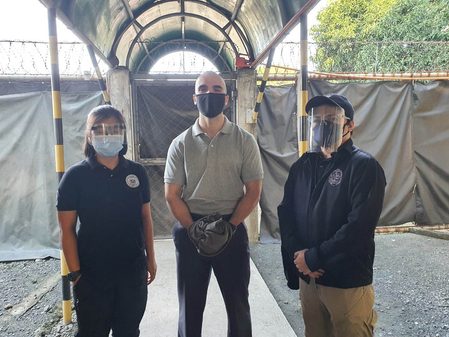
![[OPINION] Making sense of Pemberton’s pardon](https://www.rappler.com/tachyon/2020/09/pemberton-bargaining-chip-September-11-2020.jpg?fit=449%2C449)


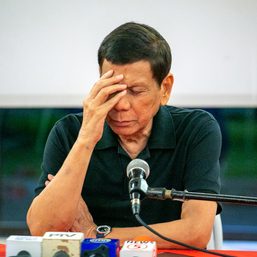

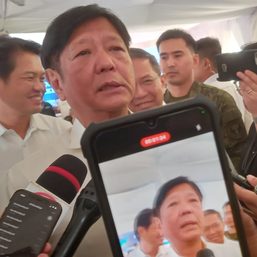
![[OPINION] ‘Some people need killing’](https://www.rappler.com/tachyon/2024/04/tl-some-people-need-killing-04172024.jpg?resize=257%2C257&crop_strategy=attention)
![[Judgment Call] Resisting mob mentality for warrantless arrests](https://www.rappler.com/tachyon/2024/04/judgement-call-mob-mentality.jpg?resize=257%2C257&crop=352px%2C0px%2C720px%2C720px)

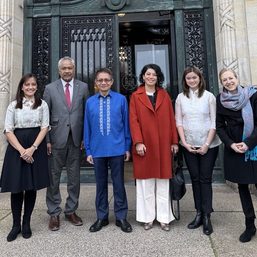
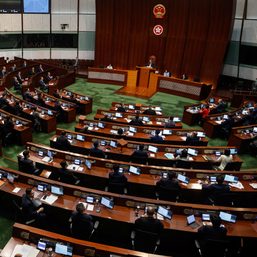
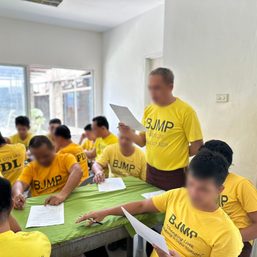
![[OPINION] An urgent appeal to amend the GCTA law](https://www.rappler.com/tachyon/2024/03/An-urgent-appeal-to-amend-the-GCTA-law.jpg?resize=257%2C257&crop_strategy=attention)
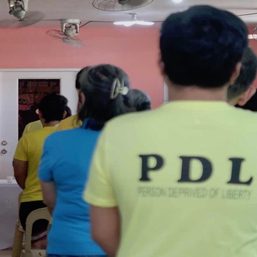
![[Under 3 Minutes] Silip sa loob ng Bilibid](https://www.rappler.com/tachyon/2024/01/title-card-ls-1.jpg?resize=257%2C257&crop=420px%2C0px%2C1080px%2C1080px)
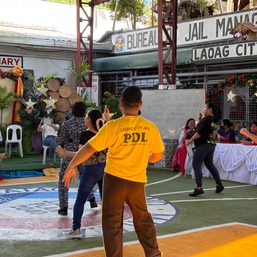
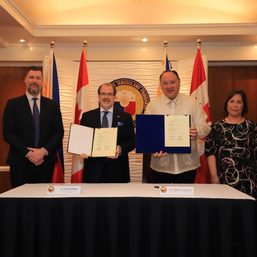
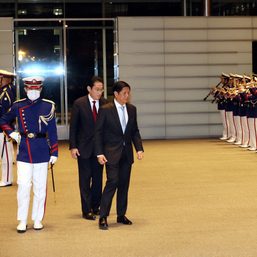
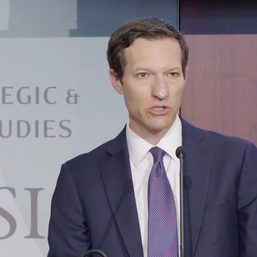
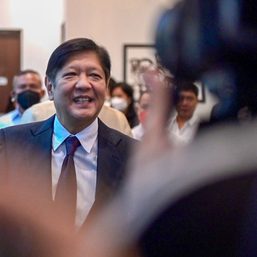
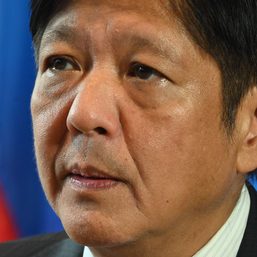
There are no comments yet. Add your comment to start the conversation.